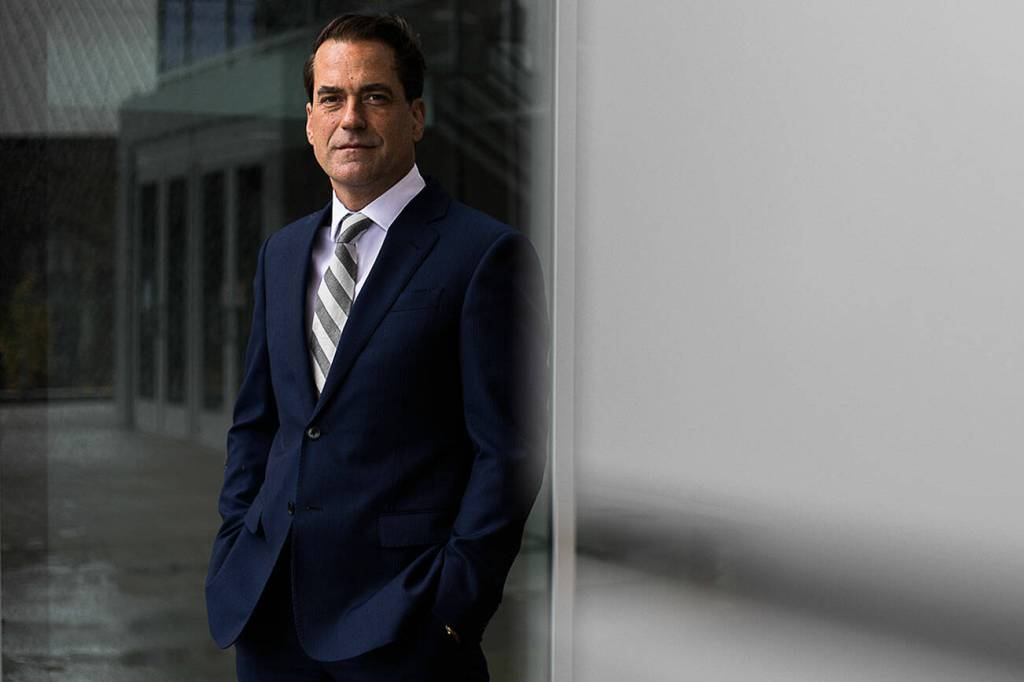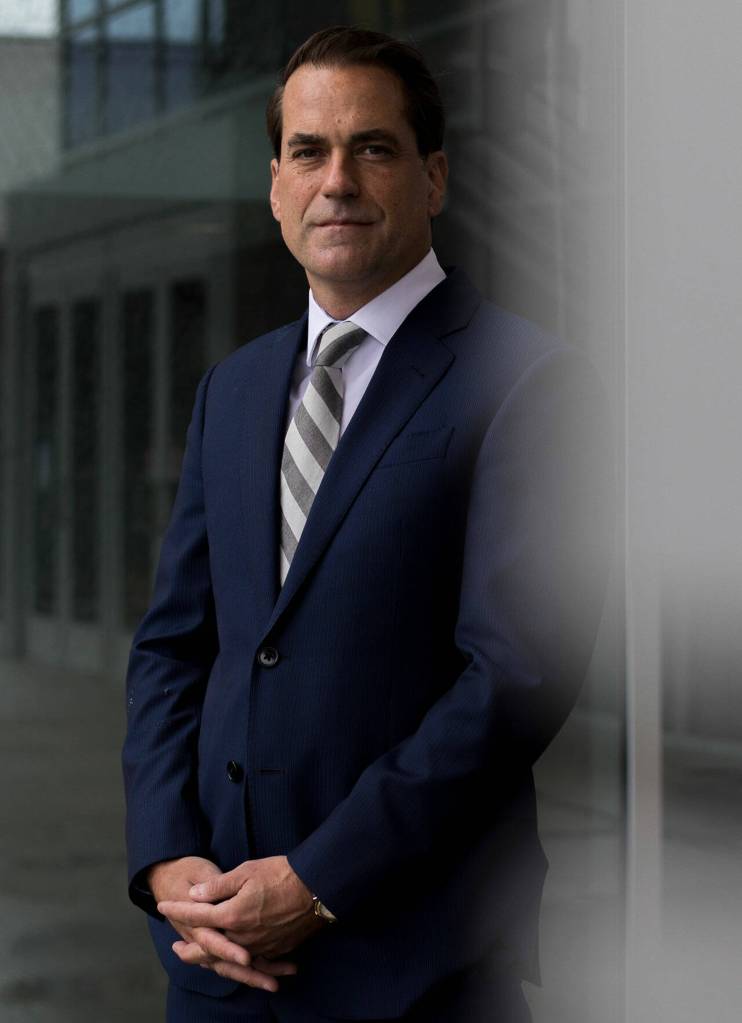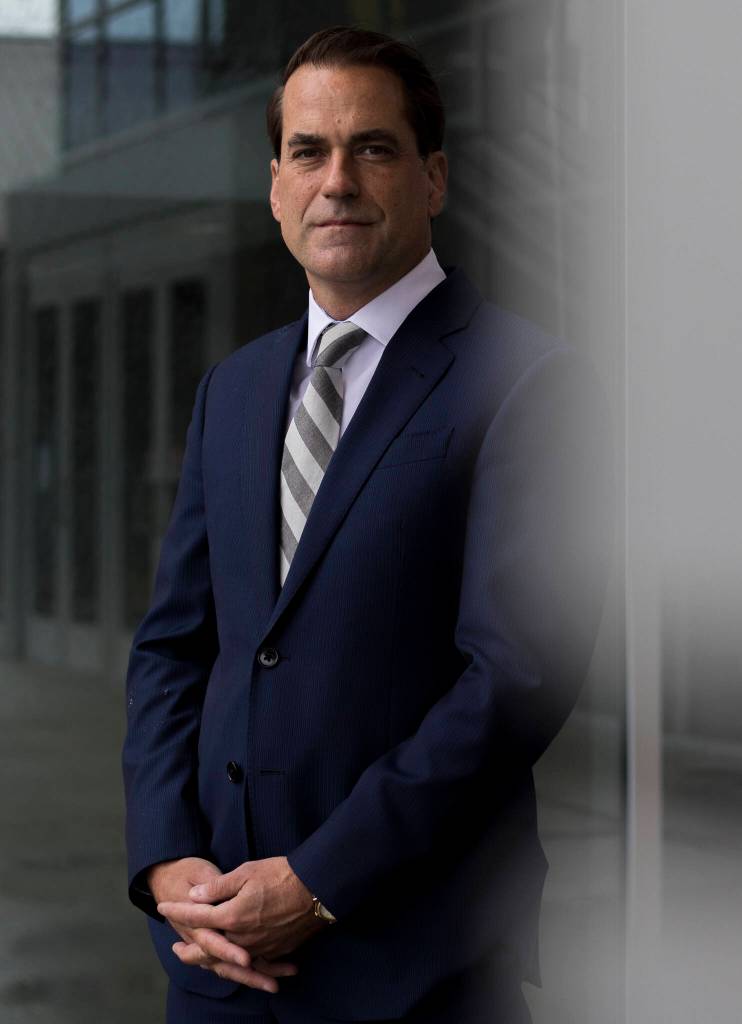After 3 long years, Adam Cornell won’t run again for prosecutor
Published 1:30 am Wednesday, November 17, 2021



EVERETT — Snohomish County Prosecutor Adam Cornell won’t run for re-election next year.
In his one term, he has found the work to be “intense, impactful and immensely rewarding.”
Purposely, he noted, he left out the word “enjoyable.”
The job has dulled his optimism. He’s not as idealistic as he used to be.
“I think a job like this helps you understand, more persistently, human frailty,” he said in an interview.
Every day there are reminders of how any choice he makes can profoundly affect victims, families, defendants, his staff and the broader community.
After 20 years with the prosecutor’s office, Cornell will be done. The past three years in charge have felt like eons. He has no immediate plans to run for any office.
Many in the legal field see prosecutors as more powerful than judges: It’s the prosecutor who decides which cases merit criminal charges, who oversees the county’s civil attorneys and who holds an advocacy role in crafting local justice policies.
No one has publicly announced plans to run for the position.
Cornell ran unopposed in 2018. His term has been beset by challenges. He has made choices that have divided people. Some he’s proud of, others he felt were necessary.
In his first year as the top prosecutor, Cornell inherited four lawsuits targeted at his predecessor, Mark Roe, alleging a hostile workplace and inappropriate behavior.
Cornell said the allegations destabilized the office’s morale. He said he aimed to instill a culture of kindness and respect toward employees. By May 2020, the county settled all of the lawsuits, without admitting fault, for a total of $1.3 million.
Things didn’t get easier.
In his second year, a global pandemic disrupted the criminal justice system. Cornell and other leaders had to balance public health with public safety. His office implemented telework and a masking policy. And to keep COVID-19 from spreading within the jail, his deputy prosecutors early on agreed to release inmates who were held on nonviolent and non-sexual offenses.
More recently, Cornell said he got some backlash when he imposed a vaccine mandate in his office in September. Since then, though, he said 100% of his staff has become compliant, either by getting vaccinated or by receiving an exemption.
The prosecutor sometimes played foil to Snohomish County Sheriff Adam Fortney, another first-term elected official.
Fortney reinstated in January 2020 two deputies who were fired for violating policy in a warrantless trunk search. But Cornell kept them on the so-called Brady list of officers with credibility issues.
In April 2020, Cornell wouldn’t defend Fortney against two recall efforts, started largely in response to a 1,100-word Facebook post the sheriff penned decrying the governor’s statewide coronavirus shutdown. Cornell wrote to the sheriff at the time: “Put simply your words were akin to yelling ‘fire’ in a crowded theater.”
“It is a relationship where we can both be direct and honest and professional with one another,” Cornell said. “I have always appreciated that about my relationship with the sheriff, even at times when there were decisions that I made that were very unpopular with him.”
As prosecutor, it has been up to Cornell to decide whether to pursue charges against police officers who used potentially deadly force. Citing the difficulty of having to prove beyond a reasonable doubt that an officer is guilty, he never chose to file charges.
Perhaps the highest-profile case he reviewed was the shooting of 24-year-old Nickolas Peters, which took place just weeks before the passage of statewide Initiative 940. Under the old law, prosecutors would have to prove the shooter, deputy Art Wallin, acted with malice. And that’s extremely difficult.
He said he sat down with Peters’ family and was transparent about why he chose not to charge the deputy. They were not swayed.
“There was intense anger at my decision in some corners,” Cornell acknowledged.
Never, Cornell said, has he made a decision for political points.
He could have, when community members, including the mayor of Edmonds, called on him to charge a man with a hate crime for defacing an “I can’t breathe” mural. But prosecutors felt it would have been “entirely speculative” to suggest the suspect acted because of his perception of the victim’s race. It would have been “completely unethical” to pursue charges, Cornell said.
He also had to handle the fallout from when two deputy prosecutors, Michelle Rutherford and Elliot Thomsen, had their cases dismissed in the middle of trial due to mishandled evidence.
Cornell didn’t discipline Rutherford. Instead, he sent out a memo to his staff, clarifying how prosecutors should handle evidence in a process known as pre-trial discovery.
Then Thomsen’s case was dismissed for similar reasons in February. Cornell suspended the deputy prosecutor for five days. He referred to his earlier memo, noting Thomsen should have known better.
Cornell is proud of the work he’s done as top prosecutor.
He has been at the forefront of some progressive criminal justice reforms in the state. He supported resentencing people who were given life in prison in part due to a second-degree robbery conviction under the “three strikes” law. In February, he agreed to free one such prisoner, Lawrence Dean Fillion.
Cornell lauded new diversion programs his office helped start, like Law Enforcement Assisted Diversion, or LEAD, which partners law enforcement with social and health service providers. And he created a group of deputy prosecutors, the Crossroads Unit, to manage cases for those willing to seek help with substance abuse and other problems.
In a partnership with Microsoft, he is working on a more comprehensive way to collect data across Snohomish County’s criminal justice system, including the prosecutor’s office, the courts and police agencies. He believes the data should shed light on how certain groups, particularly people of color, are disproportionately impacted.
Cornell hopes to get the project up and running by the end of his term.
He has 13 months.
“I don’t want to limp out. I want to go out strong,” he said.
In the time he has left, he said he wants to continue to advocate for “common sense gun reform,” if it comes up again during the legislative session. He has spoken to lawmakers on the issue before, recalling the worst day of his career as a deputy prosecutor, July 30, 2016. He was called to a home in Mukilteo where a young man had opened fire with a military-style rifle, killing three people, wounding a fourth.
Cornell isn’t sure what he’ll do next.
He has always needed to improvise.
He didn’t have a plan — and no one had a plan for him — when he was a foster child, bouncing from home to home. But he found his way to a family and good friends.
In 1998, when he walked onto the Seattle-Bainbridge Island ferry, he didn’t expect to meet the woman who would become his wife. Now they’ve been married almost two decades.
And he never thought he would become a prosecutor, or even an attorney, when he went to law school at Lewis & Clark College in Portland, Oregon. He was more interested in child advocacy.
Judge Ellen Fair had other ideas. After seeing Cornell speak at a judicial conference, Fair asked him to work for her as a law clerk in Snohomish County. She told him to take the bar exam. Finally, she told him the prosecutor’s office was hiring.
With each request, he relented.
And so Cornell became a deputy prosecutor.
At the end of October, he made his announcement in an email to staff. It was a brief message, just three sentences long, hidden in a weekly update giving out “kudos” to staff members and encouraging people to vote.
“Simply put,” he wrote, “by the end of my term it will be time for something new.”
Zachariah Bryan: 425-339-3431; zbryan@heraldnet.com. Twitter: @zachariahtb.




